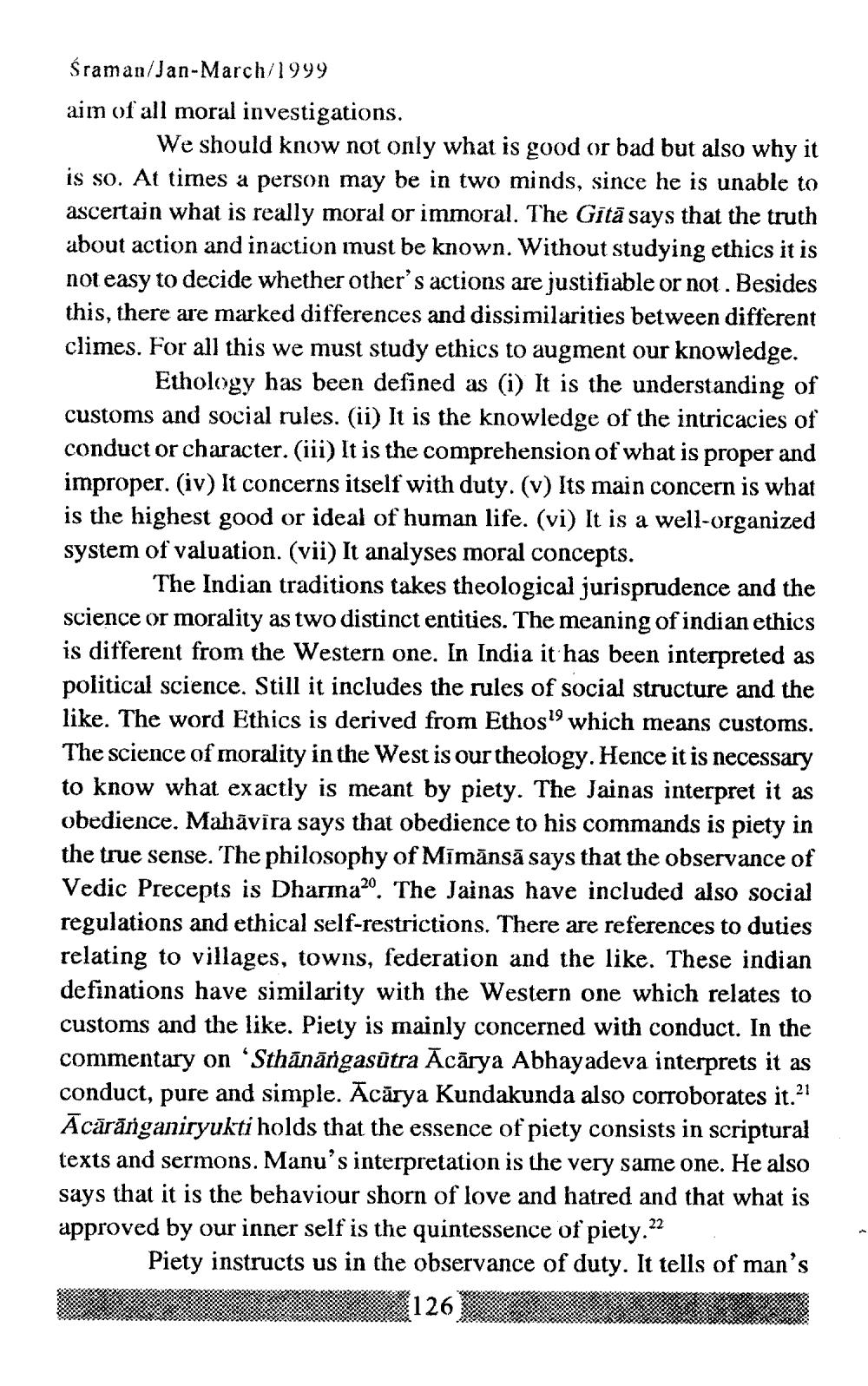________________
Śraman/Jan-March/1999 aim of all moral investigations.
We should know not only what is good or bad but also why it is so. At times a person may be in two minds, since he is unable to ascertain what is really moral or immoral. The Gitā says that the truth about action and inaction must be known. Without studying ethics it is not easy to decide whether other's actions are justifiable or not. Besides this, there are marked differences and dissimilarities between different climes. For all this we must study ethics to augment our knowledge.
Ethology has been defined as (i) It is the understanding of customs and social rules. (ii) It is the knowledge of the intricacies of conduct or character. (iii) It is the comprehension of what is proper and improper. (iv) It concerns itself with duty. (v) Its main concern is what is the highest good or ideal of human life. (vi) It is a well-organized system of valuation. (vii) It analyses moral concepts.
The Indian traditions takes theological jurisprudence and the science or morality as two distinct entities. The meaning of indian ethics is different from the Western one. In India it has been interpreted as political science. Still it includes the rules of social structure and the like. The word Ethics is derived from Ethose which means customs. The science of morality in the West is our theology. Hence it is necessary to know what exactly is meant by piety. The Jainas interpret it as obedience. Mahāvīra says that obedience to his commands is piety in the true sense. The philosophy of Mīmānsā says that the observance of Vedic Precepts is Dharma20. The Jainas have included also social regulations and ethical self-restrictions. There are references to duties relating to villages, towns, federation and the like. These indian definations have similarity with the Western one which relates to customs and the like. Piety is mainly concerned with conduct. In the commentary on 'Sthānāngasūtra Ācārya Abhayadeva interprets it as conduct, pure and simple. Ācārya Kundakunda also corroborates it.?" Ācāränganiryukti holds that the essence of piety consists in scriptural texts and sermons. Manu's interpretation is the very same one. He also says that it is the behaviour shorn of love and hatred and that what is approved by our inner self is the quintessence of piety.22 Piety instructs us in the observance of duty. It tells of man's
126




